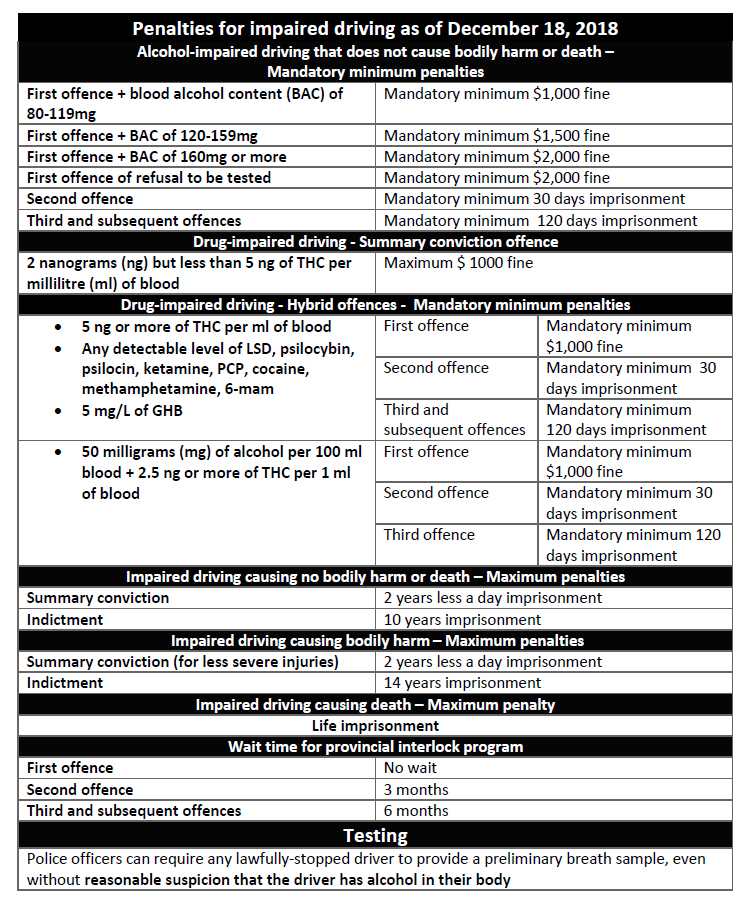 By Staff
By Staff
December 12th, 2018
BURLINGTON, ON
Earlier this year, the Government of Canada introduced Bill C-46, the most comprehensive reform to the Criminal Code transportation regime in more than 40 years. The new law is a modern, simplified, and more coherent system of reforms to better deter and detect drug and alcohol-impaired driving.
 The elements of Bill C-46 related to drug-impaired driving came into force on June 21, 2018. The legislation authorizes police to use additional tools, such as roadside oral fluid drug screeners, enacts new driving offences of being over a prohibited blood drug concentration, and allows for blood samples to be collected without first requiring a driver to undergo a drug recognition evaluation.
The elements of Bill C-46 related to drug-impaired driving came into force on June 21, 2018. The legislation authorizes police to use additional tools, such as roadside oral fluid drug screeners, enacts new driving offences of being over a prohibited blood drug concentration, and allows for blood samples to be collected without first requiring a driver to undergo a drug recognition evaluation.
The part of the legislation related to alcohol-impaired driving will come into force on December 18, 2018.
These amendments include, but are not limited to, the introduction of mandatory alcohol screening and the introduction of some new and higher mandatory minimum fines and some higher maximum penalties for impaired driving.
Mandatory Alcohol Screening
There have been many questions regarding mandatory alcohol screening. Currently, police officers must have reasonable suspicion that a driver has alcohol in their body before conducting a roadside test. As of December 18, 2018, police officers with an Approved Screening Device (ASD) on hand can require any lawfully-stopped driver to provide a breath sample, even without reasonable suspicion that the driver has alcohol in their body. This would be completed after the person has been lawfully stopped pursuant to authority (common law or provincial Highway Traffic Act).

The rules on driving impaired are about to change – tougher as well.
Research suggests that up to 50 per cent of drivers with a blood alcohol concentration above the legal limit are not detected at roadside check stops. Mandatory alcohol screening provides a mechanism for better detection of those who choose to drink and get behind the wheel of a vehicle.
Note: A driver who refuses to provide a sample would be subject to a criminal offence (and a mandatory minimum $2,000 fine).
Penalties for Impaired Driving as of December 18, 2018
The proposed legislation would enact some new and higher mandatory minimum fines, and some higher maximum penalties.
 Refer to the attached chart for a summary of the new penalties (source).
Refer to the attached chart for a summary of the new penalties (source).
Shared Responsibility: Impaired driving is the leading criminal cause of death and injury in Canada.
Community safety is a shared responsibility, and we encourage residents and visitors to continue to work with us to reduce impaired driving. Impaired driving is considered a crime in progress. If you witness suspected impaired driving, please call 9-1-1 to report it.

















